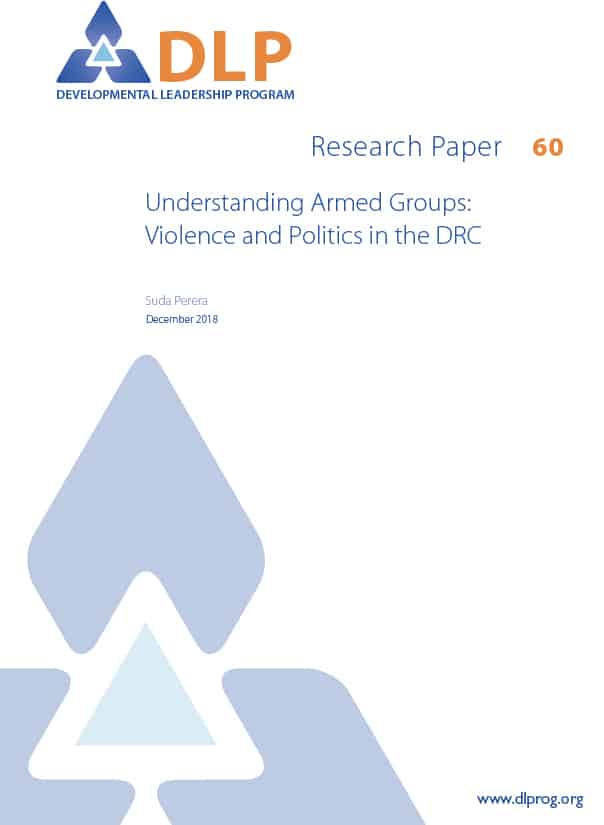International actors view the many foreign and local armed groups operating in the eastern Congolese provinces of North and South Kivu as one of the main drivers of the country’s violence and insecurity. A well-resourced international effort to tackle the armed group problem has helped to contain this violence, and prevent a return to full-scale conflict. But armed group proliferation and violence persist. Why?
This study suggests that international intervenors have seen armed groups as apolitical, predatory criminals, and have not tackled the causes of their formation and actions. It also suggests entry points for more politically informed engagement with armed groups. Direct engagement with armed groups may be possible for international actors if done on a small, carefully controlled scale. Although this would require a radical change in organisations’ operating procedures, engagement with armed groups may become more palatable if they are seen as extensions of state power or as armed members of local communities.
The paper also discusses two linked objectives: to reduce the intensity of conflict over land by reducing the importance of land for everyday survival; and to provide alternative livelihoods to make armed action less attractive.










